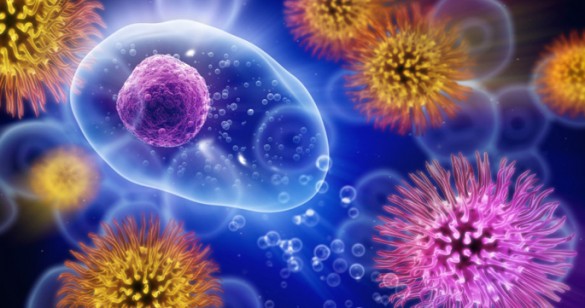Nonsense-mediated mRNA decay (NMD) is a quality control mechanism that regulates levels of both aberrant and wild-type cellular RNAs. It also contributes to antiviral immunity against select plant and human RNA viruses. However, whether NMD exerts an antiviral effect against DNA viruses was not known.
Now, John Karijolich, PhD, and colleagues have demonstrated that NMD restricts replication of the DNA virus Kaposi’s sarcoma-associated herpesvirus (KSHV), the cause of Kaposi’s sarcoma and primary effusion lymphoma.
The researchers used high-throughput transcriptomics to identify host and viral NMD targets in primary effusion lymphoma cells. They discovered an NMD-regulated link between the unfolded protein response, which is activated by cell stress, and the main KSHV transcription factor.
The study in Nature Communications describes connections between cellular RNA quality control pathways and viral gene expression and demonstrates that NMD is antiviral against DNA viruses.
This research was supported by grants from the National Institutes of Health (AI141448, CA250051), an American Cancer Society Research Scholar Award, and funds from Vanderbilt University Medical Center. Karijolich is a Pew Biomedical Scholar.















